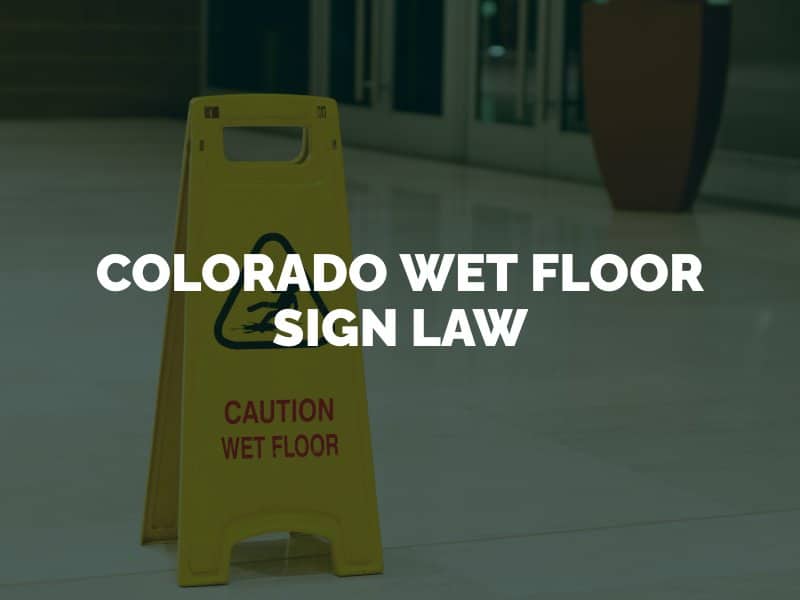Holding a property owner legally responsible for your slip and fall accident generally depends on your ability to prove he or she failed to take reasonable care to prevent your accident. The presence of a wet floor sign – or lack thereof – could impact whether or not you can recover financial compensation for your claim. Learn what the law in Colorado says about posting wet floor signs, as well as how it may affect your slip and fall case.

Yes, wet floor signs are a requirement by law in Colorado when they are reasonably necessary to protect visitors against property hazards. If conditions on a property could reasonably result in bodily injuries, such as rain, snow or spilled liquids, a business has a legal responsibility to display wet floor signs. The failure to fulfill this requirement could place legal responsibility for a slip and fall accident with the negligent party.
It is a common misconception that putting up a wet floor sign is equivalent to the store doing everything possible to prevent falls. All property owners in Colorado have a duty to exercise the same degree of care that a prudent landowner would in the same circumstances. If a prudent person would do more than simply putting up a wet floor sign, the property owner could still be liable for a slip and fall.
It is important to note, however, that the presence of a wet floor sign can change the legal duty of care owed to a property visitor. Based on previous case law (Mathias v. Denver Union Terminal Ry Co.), a property visitor’s status may change from invitee to licensee (or even trespasser, in some cases) when that person walks behind a wet floor sign.
This change in visitor classification changes the property owner’s legal duties of care by extension. It is important to recognize your status as a visitor, therefore, both with and without a wet floor sign present, to understand whether you have the right to file a slip and fall claim.
Wet floor signs and slip and fall claims are decided on a case-by-case basis. All premises liability cases, however, have the same elements of proof. Your claim will attempt to prove that the property owner, company or employee breached a duty of care owed to you and that this caused your slip and fall accident. In general, a property owner’s duties of care are:
Putting up a wet floor sign is only part of what a property owner must do to fulfill his or her duties of care to an invitee. Yet if you walked past a wet floor sign, and this changed your status from an invitee to a licensee, the property owner may owe you a lesser duty of care. For instance, a property owner does not owe licensees a duty to look for undiscovered hazards.
Even if a property owner did fulfill his or her duties of care by putting up a wet floor sign, you could retain the right to file a claim if the sign was an ineffective warning, such as if an employee placed the wet floor sign in a position that is difficult to see. The numerous qualifications and complications a slip and fall case can involve is why it is important to speak to a qualified Denver injury attorney.
There are many different parts to a slip and fall liability case. The presence or lack of a wet floor sign is one of many things that can impact a claim. If you’ve been injured in a recent slip and fall accident in Colorado, an attorney can help you with the legal process.
From identifying the responsible party to taking over settlement negotiations with an insurance company on your behalf, an experienced attorney can sort through your case while you focus on recovering from your slip and fall accident. Consult with an attorney today for more information.